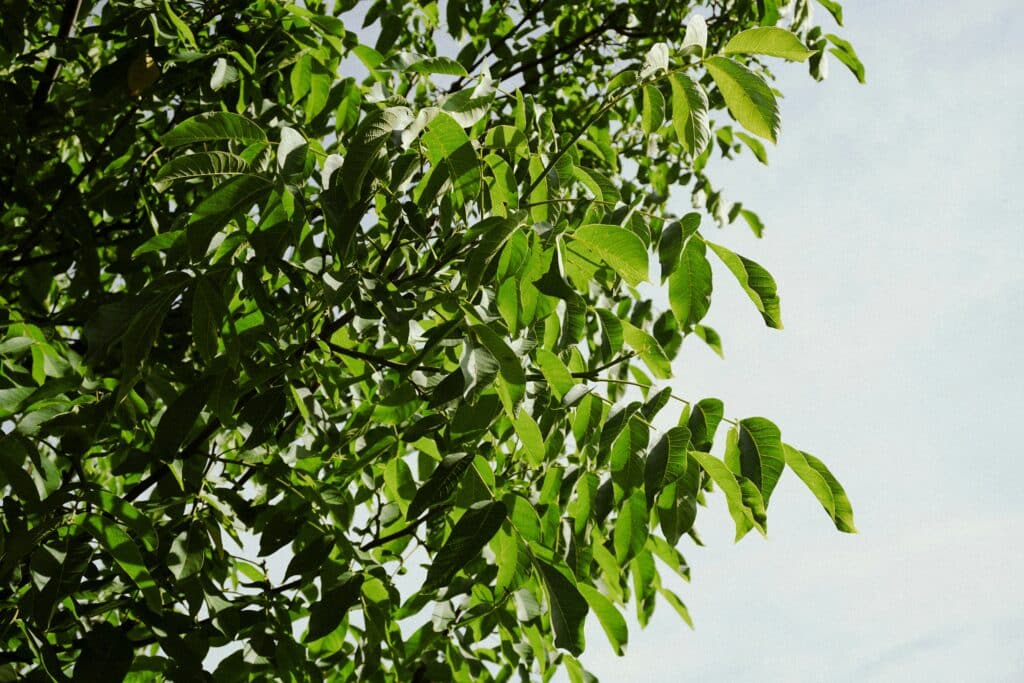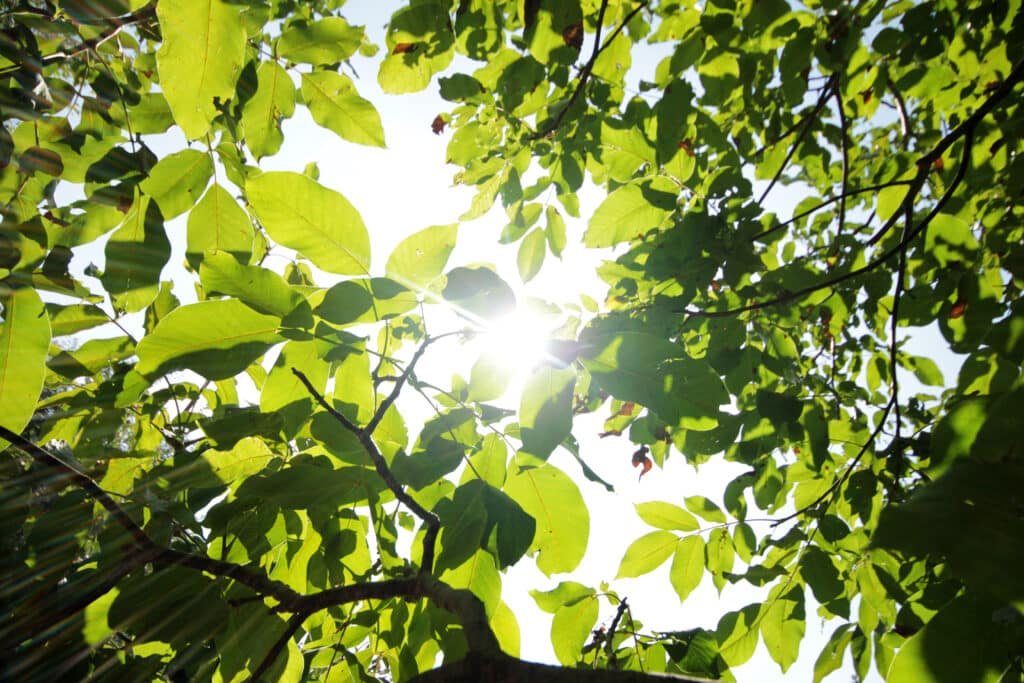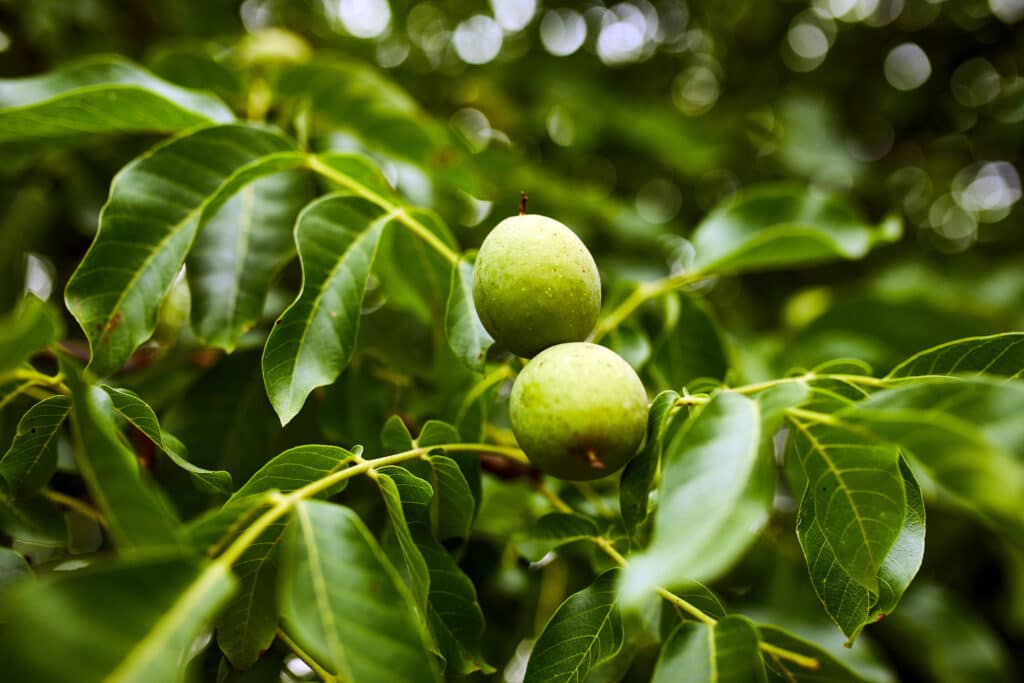If you have walnut trees in your woodlot, they are most likely Black Walnut. Native to Michigan, black walnut trees are the most common walnut species in the state and are prized for their fine, straight-grained hardwood, dark color, durability, and resistance to warping. These desirable qualities make these trees a top choice for high-end furniture and cabinetry.
How to Identify Black Walnut Trees in Your Woodlot
What does a walnut tree look like? The most common types of walnut trees in America are the Black Walnut, Butternut (or White Walnut), and English Walnut. However, Michaganders are most likely to find Black Walnut in their woodlots.
Known for their large size, straight trunks, and rounded, open crowns, you can identify Black Walnut trees by their distinctive nuts, spicy fragrance, leaves, and the chambered pith found in their twigs.
Black Walnut (Juglans nigra)
- Leaf: They have compound leaves featuring alternate, toothed leaflets coming from a central stem.
- Fruit/Seed: They make nuts with green husks and black inner kernels in the fall.
- Bark: Their bark is dark brown to black, with deep furrows and pits.
- Size: They grow to be around 50-75 feet tall.
- Lifespan: They typically live around 100-150 years.
- How Fast They Grow: They are considered moderate to fast growers, growing around 1-3 feet per year and reaching full maturity within 30-50 years.

Is Walnut a Hardwood?
Yes, walnut is considered a tough hardwood with medium density. It’s distinguished by its moderate bending and crushing strengths, along with low stiffness. And because of its rich color, Walnut is often chosen for furniture, flooring, architectural millwork, cabinets, doors, and more.
Learn about the difference between hardwoods and softwoods.
What are Walnut Trees Worth?
When it comes to determining the worth of your walnut trees, it can vary on several factors including:
- Species: Black walnut is one of the most valuable and sought-after types, making it more profitable than other walnut species.
- Volume: The more black walnut trees that can be harvested from a property, the higher the overall price. This is because large-scale harvesting allows logging companies to lower their costs by obtaining more timber from one location.
- Accessibility: If your property is close to a sawmill, you’ll likely get a better price for your black walnut trees due to reduced transportation costs.
- Tree Size and Quality: Because larger, more mature trees with good quality wood are worth more, walnut timber value is determined by the tree’s diameter, height, and veneer rating.
- Market Demand: The value of your black walnut trees also depend on market conditions. High demand, especially for uses like furniture and flooring, can significantly increase its worth.
By considering these factors, you can better understand the potential value of your walnut trees. Learn more about timber appraisal.

Harvesting Walnut From Your Woodlot with Buskirk Lumber
Harvest your mature walnut trees with the expertise of Buskirk Lumber’s timber procurement team! Selling directly to our sawmill helps you maximize your profits, and with our in-house trucking fleet, there’s no need to worry about outsourcing transportation.
Regular harvesting is essential for the healthy regeneration of your woodlot. Our timber procurement experts practice sustainable selective harvesting, which involves carefully choosing and cutting only the most mature trees that meet industry standards, while allowing the rest to remain. By removing older trees, we create space for younger, more vigorous trees to thrive and produce higher levels of oxygen.
As buyers of standing walnut timber in Michigan, we also offer referral incentives when multiple woodlots are harvested in the same area. Contact us to explore how we can help you optimize your profits by coordinating multiple jobs in one location!

